Editor’s note: Eco parenting anyone? Our parenting choices are starkly revealing. They hold a mirror up to us, reflecting back our habits, prejudices, inconsistencies, fears, quirks, hesitations, hang ups, impatience, and more. Yikes! Parenting is humbling and has made me so much less judgmental. As I start to examine one “area for improvement” and pledge to do more, others pop out and heckle me. It’s not possible to study everything, and (barely?) “good enough” has replaced the pre-kid aspirations of perfection I may have entertained once upon a time. Still, I want to do better and the occasional kick in the ass can be inspiring. Enter Professor Alhadeff.
Last year, while living in Oakland, California, I was hungry for a community of parents whose values paralleled some of my own so I joined a holistic parenting group. One of our meetings was held in the Oakland Hills. The striving-to-become-pregnant hostess introduced our toddlers to her “eco-toy room”—floor-to-ceiling unopened boxes of pricey, ecologically-conscious toys (recycled plastic, wood, locally made). Later, I discovered she was a representative for Merck Vaccines (specifically the Gardasil HPV vaccine)—affording her such ludicrous consumption.
Although extreme, the unfortunate irony of this Bay Area scenario is at the crux of my underlying questions:
- How can parents address our complicity with convenience culture while positively teaching children to create and sustain an eco-literate society?
- How does inundating young women’s bodies with a product that has numerous life threatening side effects parallel polluting our waters and earth with petro-plastics and other unsustainable materials?
- How can we confront the irony that the pharmaceuticals that toxify our bodies and our environments are used to counteract the petroleum toxification of our bodies and our environments?
- How can we begin to inspire ecological awareness and action given that consumer-entitlement too often damages the environment, and also that we are taught to feel shame about our own bodies?
- When will “safety” imply physical and psychological wellbeing, not regulation?
- How can we be “good” parents while we live our ethics?
Petroleum parenting
“Petroleum parenting” — what I identify as the choices that parents make that substantially contribute to both environmental destruction and body-phobic institutional practices — include how we give birth, how we engage breastfeeding, how, or whether we vaccinate our babies and children, how we transport our children (including baby-wearing and car seat choices), and how we choose to diaper our infants and toddlers. These seemingly benign behaviors, in fact, maintain our free-market, designer-birth culture.
Intricate capitalist systems colonize both the human body and our earth body. When we allow our normal bodily processes to be pathologized, we relinquish both our autonomy and our interdependency. TIME magazine proclaims “No way around it: your child is an environmental disaster.” This mainstream misinformation gives permission to buy more, waste more.
Sancti-mommies: distortion of “normal”
The concept of normal becomes violently distorted in the service of capitalism. Examples abound.
Since the 1960s, the disposable diaper industry has made trillions of dollars from their deliberate mis-education propaganda. We are the only species that sits in our own filth. Disposable diapers are the number one landfill. Chemicals used to make disposable diapers are amongst the most toxic both for the environment and baby’s skin and organ system. The average US parent uses 7,200 diapers per child. Our culture’s phobic relationship to bodily functions is an example of where ecologically conscious parents can make common sense interventions.
However, when I share that we never used disposable diapers or that we practiced elimination communication, I am often condemned as a holier than thou “sanctimommy.” Such labeling parallels “politically correct” judgmentalism. Explicitly stating my ethical commitment is interpreted as pandering self-righteousness. This denigration is another manipulative tactic, shutting down non-status quo voices—in this case, the environmentally ethical parent.
Parenting and our agenda for social justice
New parents are warned that we have to “sacrifice.” Similarly, everyone is told that to be environmentally proactive, we need to “sacrifice.” Parents must examine this intersection of consumer culture’s self-perpetuating myths. To alleviate the “sacrifice,” mothers’ may use commercial products as surrogates for our own bodies (pacifiers replace the shared intimacy of breast-feeding, strollers and car-seats replace baby-wearing, technology replaces physical contact—smartphones as babysitters).
Our culture of pacification (convenience culture buttressed by petroleum/pharmaceutical corporations) metaphorically and literally uproots mothers’ agency: “Pacifiers have been associated with a fourfold drop in breast-feeding” (Sally Morell Fallon and Thomas S. Cowan, The Nourishing Traditions Book of Baby and Child Care. Washington DC: The New Trends Publishing Co., 2013: 129).
How we raise our children is critical to our agenda for social justice. Ecofeminist philosophy challenges interconnecting tyrannies embedded in petro-pharma convenience culture—offering one approach to re-examine motherhood:
Ecofeminism points to…two of society’s most grueling conflicts…culture and nature…self and other. Within western patriarchy, culture is seen as a triumph over nature, a cutting off from the body and the natural world… ‘self’ is seen as a triumph over other; a cutting off from dependence on others and a protection of one’s self-interest One of ecofeminism’s primary tasks is to uncover and explore the history of these two conflicts, examining how they reinforce the domination of both woman and nature. — Chaia Heller, Institute for Social Ecology, unpublished (4)
In This Changes Everything: Capitalism vs. the Climate, Naomi Klein maintains:
Any attempt to rise to the climate challenge will be fruitless unless it is understood as part of a much broader battle of worldviews (460).
Applying eco-pharmaco-vigilance, the science that analyzes adverse effects of pharmaceuticals on ecosystems—the earth and human body—we decode interlocking oppressive systems. Given current pharmaceutical tyrannies that dictate how a parent cares for her child, we cannot ignore extraordinary ironies of instituting parental-security-measures to “protect” children—whether on the internet or playground. How can we allow this staggering hypocrisy when parents voluntarily inject their children with a litany of proven toxins?
Tyranny of greenwashing
A quick online scan shows that eco-parenting practices are 99.9% commercial. Chew on that for a moment. Consumer-oriented greenwashing becomes the default of making supposedly ethical parental choices. Greenwashing is capitalism dictating our alleged freedom. Sound bite aphorisms fuel much of the US Green Movement’s misleading activism. Convenience consumer culture frames the environment as a desirable product while little, if no, sustainable social change is realized.
In a 2008 Roper poll, 91% of new parents claim recycling is critical for their children’s future. “Eco-parenting” is not about buying “green” products or recycling (easing consumer-guilt and giving the impression parents can buy/waste more). Rather, I suggeset eco-parenting requires a commitment to connect the dots. For example, the ubiquitous chemical bisphenol A (BPA) is manufactured in canned food liners, water pipes, baby bottles, teethers, pacifiers, and dental-sealant coated on children’s teeth to prevent cavities. Replacement chemical-plastics can be even more dangerous.
Parents must recognize market-driven ironies of purchasing a slew of (expensive) BPA-free products, while handling contaminated paper receipts coated with BPA, then feeding their children and potentially passing poisons into their food. BPA and its toxic alternatives inhibit the thyroid gland’s role in brain development; even in very low doses, BPA counteracts the positive role of estrogen. Again, our children’s health is intricately bound with the health of the environment.
Our children’s “safety”
Within the national debate about how to emotionally protect our children, many “holistic” parents conflate “news” about terrorism, police brutality, school-shootings, etc. with environmental devastation—claiming all as taboo subjects. In contrast, I suggest we teach our very young children why ecologically-conscious values and behaviors are critical and beautiful.
My scholarship is embedded within such life choices. Since my son was born, I have been modeling and explicitly teaching him how not to create trash (consuming differently and radically less than the average citizen), and how to transform something that could become landfill into something useful. Embodying my ethics includes a commitment to live communally and barter 98% of services and goods—acquiring everything through swaps.
- I have never purchased anything new or used for my son, Zazu; and for myself, no new or used clothing or accessories for over twenty-five years. Our household produces no waste; we absorb all by-products into the use-cycle.
- Despite my “advanced” maternal age of 40 years, I chose no prenatal medical interventions (ultra-sounds, cervical examinations, blood tests) and no vaccinations–ever.
- I chose to sleep and bathe together, practice elimination communication (diaper-free as much as possible), and eschew disposable diapers or menstruation products.
- I’ve never used a pacifier or stroller, but wear Zazu on my body, never own a credit card or a car (bike/walk everywhere), and I do not own a smart-phone.
As I weaned Zazu at the age of four, I taught him how to creatively and efficiently use “resources.” He taught me light-hearted play in the midst of self-imposed urgencies. We learn together how to shift the myth of individualism to an integrated recognition of interdependency.
Am I a self-righteous sanctimommy who is instilling anxiety and insecurity in my child, or am I a mother committed to integrating my ecological values into every aspect of my personal and professional life?
A joyful, collective responsibility
As I continue to write my next book: Confessions Of An Eco-Obsessed Mother (and Other Lies), I struggle with my own privilege and anxiety. I confront the fact that our lives require another’s suffering and death (ranging from fossil fuels to “made in China”), and that such environmental injustices are not equally distributed. Educating our children about our cataclysmic interdependency, for better and for worse, is at the heart of an evolutionary eco-literate society.
Car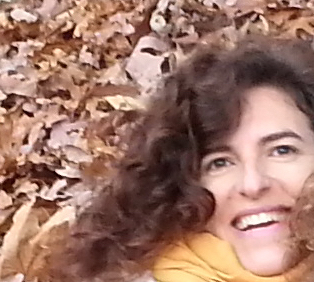 a Judea Alhadeff, PhD is Visiting Professor of Gender and Critical Pedagogy at UC Santa Cruz. She is a scholar, visual artist, and Iyengar yoga teacher. Alhadeff’s transdisciplinary book, Viscous Expectations: Justice, Vulnerability, The Ob-scene (Penn State University Press, 2014) explores vulnerability as a strategy for social justice. She has published essays in philosophy, art, sexuality, social ecology, medical ethics, and ethnic studies’ journals and international anthologies. As co-founder of “Occupy Education, Pregnancy, Parenting” and co-organizer for the Bay Area’s First International Birth Justice Fair, Alhadeff has collaboratively protested infrastructural racism and sexism in education, health care, and housing. Her analog photographs have been publicly defended by Freedom of Speech organizations such as the Electronic Freedom Foundation, artsave/People for the American Way, and the ACLU. Cara lives with her son, Zazu, in New Hampshire. See her writing, photography, videos, and body consciousness work on CaraJudea.com and CaraJudea.com/yoga.
a Judea Alhadeff, PhD is Visiting Professor of Gender and Critical Pedagogy at UC Santa Cruz. She is a scholar, visual artist, and Iyengar yoga teacher. Alhadeff’s transdisciplinary book, Viscous Expectations: Justice, Vulnerability, The Ob-scene (Penn State University Press, 2014) explores vulnerability as a strategy for social justice. She has published essays in philosophy, art, sexuality, social ecology, medical ethics, and ethnic studies’ journals and international anthologies. As co-founder of “Occupy Education, Pregnancy, Parenting” and co-organizer for the Bay Area’s First International Birth Justice Fair, Alhadeff has collaboratively protested infrastructural racism and sexism in education, health care, and housing. Her analog photographs have been publicly defended by Freedom of Speech organizations such as the Electronic Freedom Foundation, artsave/People for the American Way, and the ACLU. Cara lives with her son, Zazu, in New Hampshire. See her writing, photography, videos, and body consciousness work on CaraJudea.com and CaraJudea.com/yoga.
Photo credit: Adobe Stock # 227727671

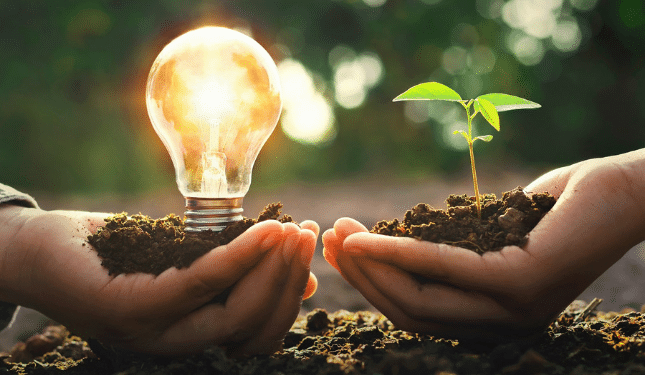






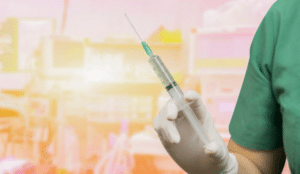
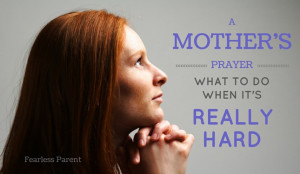
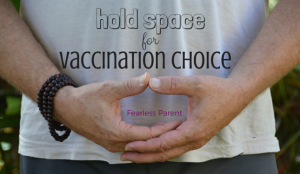

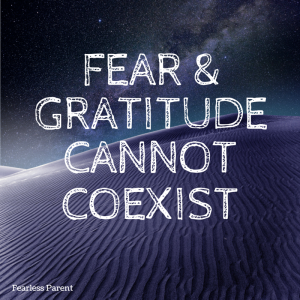
April 24, 2016 9:33 am
Comments 0